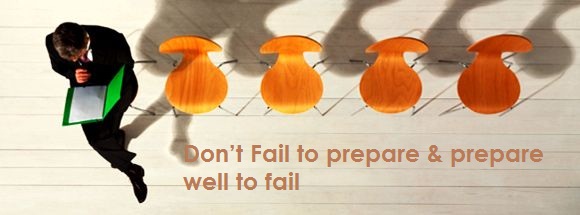


Stressing yourselves and struggling to grab the dream job is not that tough today if you carry confidence, knowledge and most importantly when you are a team player with all the skills in you. You need to stand in the competition and it can be strong when applying and be interviewing for your dream job. But it cannot be a stop to anyone when you have the desired skills. It’s a pretty rare thing that you are the only candidate for a job, in those cases, you will be approached by a company anyway, be rest assured and face the questions and the completion of the interview process. Try to get the edge on the other candidates who are with you by analyzing their skills and if they carry any extra degree. But how to do that is what we are speaking out on this blog. Try these simple ideas — here are some ways to help you stand-out from the other candidates.
Your Curriculum Vitae (CV)

Reaching out the consultancy or an employer is essential and the first challenge for anyone to get their dream job. But, this will only happen when your CV represents you better than what you are. This plays a vital role to get an interview call or a mail, and then it’s your task to present yourself and grab the job. Make sure that your CV is tailored to the job spec ified and the role offered.
Don’t Fail to prepare & prepare well to fail

Once your interview is secured, and you are all set to join your dream job. Set aside time to prepare well and try to get all the relevant information about the company you are joining. This is the exercise you need to follow before you are hitting the interview and the time you are joining the company too. Before you are hitting the interview you need to make a note of the company’s history, teams, what are they into and what they do to others?
STAR Method

This is a simple method, which will help you to answer the most challenging and competency based questions. Today organizations are very keen to know what was the situation that you have met, how did you deal with it and what was the solution you gave. This is the stage you can prove yourself and how your employer did grade you to be the best player.
A situation or Task: Describe the situation you were confronted or the task; that you needed to accomplish in a shorter time.
Action: Brief how you reacted towards the situation and what you did; this is where the interviewer will be looking for the explanation and how you used skills and attribute that they are testing. Make sure that you take the personal approach as the interviewer needs to hear about your actions, not the teams.
Result: Explain how it all ended. Use this as an opportunity to describe what you accomplished and learned from the situation.
Appearance

No matter what the role is or the organization you are attending; remember that for all little things you need to pay. Make sure for the grammar check, spell check in your CV and what you are wearing. Do not select the clothes which make you feel sick, wear right clothes that fit you the best.
Most of the people aren't going to notice the difference, but some will, of course, do it; but don't go to impress people, which will land you somewhere else. The most important thing is to look professional. Tattoos covered up. One pair of earrings for women; or none is also fine, no earrings for men. No facial piercings at all .
Attitude

Your attitude plays everything when you are facing interviewer. Carry positive body language and attitude. Greet, smile and give the interviewer a firm handshake when you meet him or her. Make eye contact and actively engage with the interviewer, and lean slightly towards the interviewer to show your engagement in the conversation. Do not look up or down, not even to the sides of the interviewer when speaking, as this can be interpreted as disinterest or apathy. Thank the interviewer sincerely for the time and opportunity and express your excitement about the employment possibility.
...
Read More

Whenever we go for any interview, it is ever time we think that what is going to happen and what questions do we need to answer. In my few years of experience, I have found few questions to be best to ask in an interview. “It’s not about me, though, it’s about you”. Here are those questions you need to ask in a job interview. I have put this list collectively because so often we can forget what an interview’s all about. It sure feels like it’s about you, but it’s really not.
An interview is in fact about how you can help your future superior and future employer succeed. You can find out what their requirements and hopes are and are they matching up with your background and experience with what they need.
Overlooking these basic specifics about the interview is easy. There will be much else going on in your work, your life, and in your job search, so you often miss out these basic things which will result very bad from the interviewer’s point of view; which is not at all a good sign for you.
Look into some conversations in between, and explore what will you get when you ask meaningful questions.
When I asked how do I get a “gold star” when an evaluation is going on, the interviewers’ faces lit up!” You will never know where it will land you, but I can tell, if you ask such meaningful questions at the end, you may get a positive result.
Ask the interviewer about his leadership style and reward system, he will feel good and his face lit up like a Christmas tree, and land you in great.
After he answers the question, say “how can I help you receive your next promotion?”, he will begin to give you advice on how you should negotiate for a higher starting salary.
And that’s exactly the point. By asking these type of questions, which focus on the needs, personality, and preferences of your future boss and future employer, you’re demonstrating that you are somebody who is genuinely interested in their well-being. And the more interest we show in others, the more promise they show to aiding our cause.
Let’s go into the topic and look at best interview questions. My aim here is to arm you with easy-to-ask, revealing-to-answer questions for you to take with you to an interview:

I hope you find these questions useful in your interviews!
...
Read More

Your CV plays a vital role in explaining you better without your presence. This is the first step that makes you through to reach the right door. Once your CV reaches out the right place it’s up to you to impress the recruiter and prove that you are really worth of the position offered. Here are the key points which will help you make good impression from the get-go.
You need to be very active when you have this type of question asked. The interviewer wants to see how serious you are about this position and how good you have prepared yourself. Research well before you hit the interview panel; your homework on the company will help you to stand out of the crowd. Be very clear why they need to get in to their company and the reason you are looking for new job should also be very impressive.
This is the universal question asked by any interviewer. Before you starts explaining yourself list all your skills and how they will be directly applicable for the company if they pick you. Project your achievements from your previous employers, preferably quantified sales, and savings on paper clips. Do not focus on what you want to get out of this job you are interviewing for, as this should be only all about you and what they will get if they hire you.
When you get this type of questions, you have to well prepare yourself and explain how well you can work with the team. Elaborate yourself and give the best examples of your team achievements and recognition you have received. Tell how strong you are alone and how well you will be equipped when you are with a team as per requirements.
It’s the time you have to praise yourself before the interviewer. While doing that give specific examples that you have achieved greatness in the past and tell them if you have solved any serious issue for your company’s biggest client. Whatever nice and tangible achievement makes you special can be memorized and get ready to deliver it when prompted.
This is the final question which gives you a hint that you are probably doing well. Be very clear and indicate how much you are expecting. So that the interviewer can calculate how much money they can make from you and when to begin doing so. Do not look so desperate, which will not help you any way. Indicate that you will be flexible and that there will be a way to work out both the financials and start date, should you get to that stage.
Finally, what is your experience of these five questions vs. small talk in interviews?
...
Read More